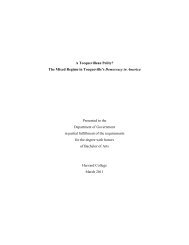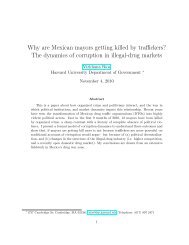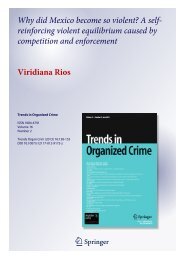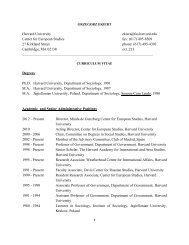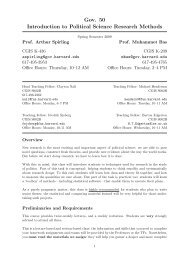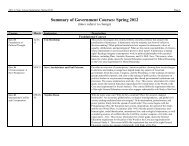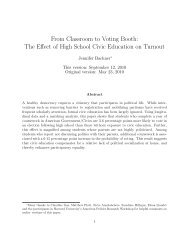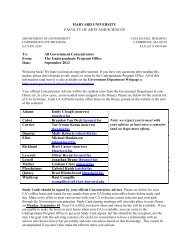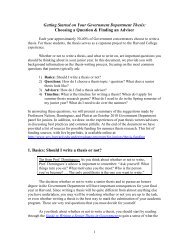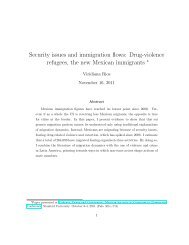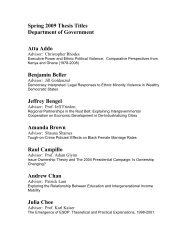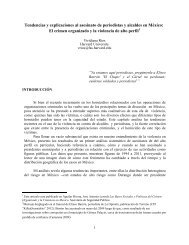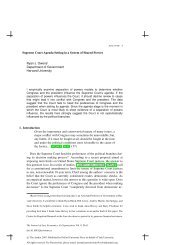1 Harvard University Political Theory Colloquium For 11 March 2010 ...
1 Harvard University Political Theory Colloquium For 11 March 2010 ...
1 Harvard University Political Theory Colloquium For 11 March 2010 ...
Create successful ePaper yourself
Turn your PDF publications into a flip-book with our unique Google optimized e-Paper software.
17 <br />
failure to exert integrative agency altogether. <strong>For</strong> Plato, such self-integration comes from<br />
the executive rule of knowledge manifested in the virtues; for Moran, it comes from<br />
rational deliberation; for McGeer, it comes from exercising forms of self-control which<br />
are akin to virtues. Moran and McGeer speak of the special status of self-knowledge;<br />
Plato speaks of knowledge simpliciter, but treats it as an executive form of practical<br />
agency which functions similarly to this modern conception of self-knowledge, or so I am<br />
arguing.<br />
The core passage: is the measure doctrine Socratic gospel?<br />
The many deny that knowledge is inherently executive, taking its rule to be contingent on<br />
not being overthrown by a rival passion or desire. Socrates too in the ‘measure doctrine’<br />
ignores the executive role of knowledge. Instead he articulates the measure doctrine in<br />
simple terms of possession of knowledge or its lack, which is ignorance. Thus he<br />
contends that the many are making a simple mistake of measurement, a bad exchange: by<br />
‘being overcome’ they must, Socrates imagines telling them, mean that in exchange for<br />
less of the good things they take more of the bad things (355e). In other words, what the<br />
many call ‘being overcome by power’ is actually ignorance of the art of measurement<br />
(357d).<br />
Now, because Protagoras was first of all in the inner frame enrolled with Socrates<br />
on the side of knowledge as all-powerful in human activity, he must accept this<br />
conclusion. But the many believe that ‘being overcome by pleasure’ is not ignorance,<br />
but something else, and so, thinking it not to be teachable (ou didaktou, 357e), do not go<br />
to sophists or send their children for instruction. The last sentence of this peroration is<br />
crucial in calling the validity of the measure doctrine into question, as was highlighted<br />
earlier: for the implication which Socrates draws from the measure doctrine is that he<br />
should join Protagoras in admonishing the many that they should be sending themselves<br />
and their children to study with sophists. To recall the outrageous formulation he uses:<br />
‘By worrying about your money and not giving it to them, you all do badly in both<br />
private and public life’ (357e).<br />
Given this red flag, how should we assess the art of measurement and the part it<br />
plays in the refutation of the many? The art of measurement has done its job of moving



